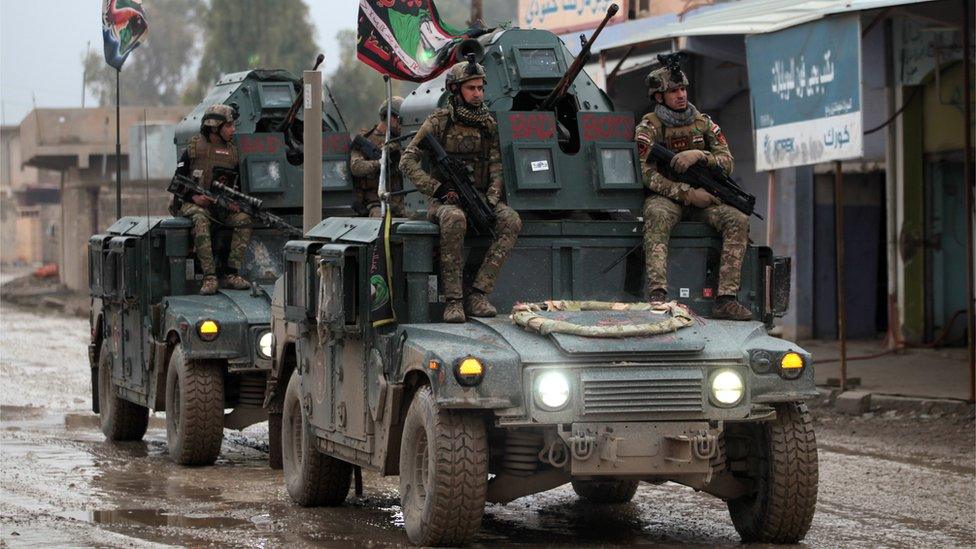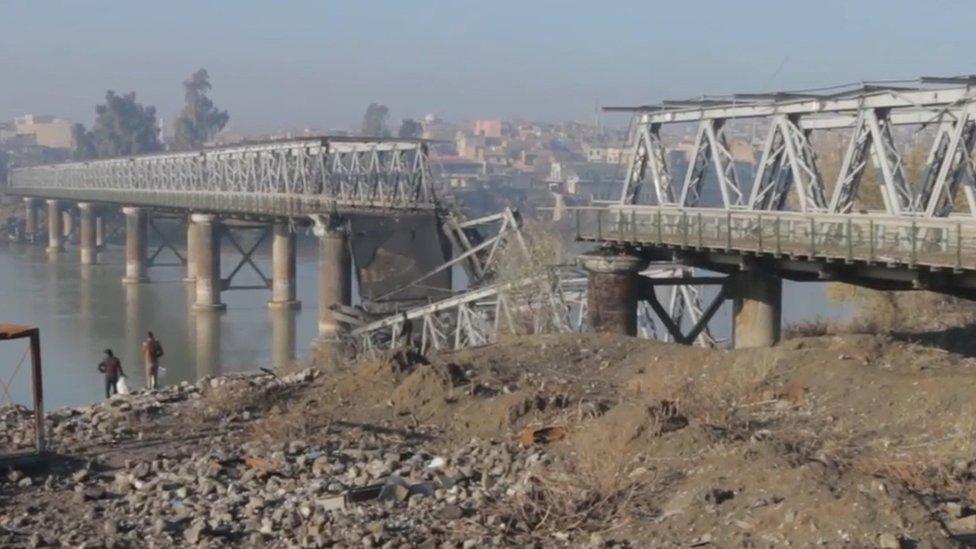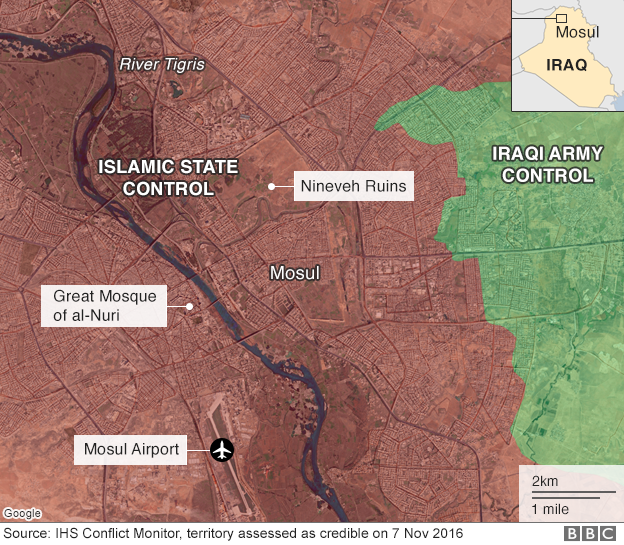Mosul battle: Iraqi forces advance in fresh push
- Published

Iraqi forces have launched the "second phase" of a major offensive to recapture Mosul from IS
Iraqi forces have launched fresh attacks against so-called Islamic State (IS) in Mosul, pushing into several eastern neighbourhoods.
It is the second phase of an offensive on the last major stronghold of IS in Iraq, which began in October.
The US-led coalition said Iraqi forces had advanced in three directions and opened two new fronts in the city.
The fresh offensive put pressure on the IS group's "ability to generate forces, move fighters or resupply", it said.
It also admitted that a coalition attack may have caused civilian casualties during an air strike in a hospital car park.
In a statement, it said its forces attacked a van after its occupants were seen firing a rocket-propelled grenade, only later realising the car park was part of "a hospital compound".
The campaign marks an end to a lull in the fighting in recent weeks.
The commander of the special forces in eastern Mosul, Lt Gen Abdul-Wahab al-Saadi, told AP news agency that the offensive was launched after troops had been bolstered by reinforcements.
He said that elite Counter-Terrorism Service (CTS) troops had pushed into the built-up Karama district for the second time, after first entering the neighbourhood in November.
He added that as of Thursday, troops were less than 3km (2 miles) from the River Tigris, which divides the city.
On Monday, the last functioning bridge over the River Tigris was "disabled" by a coalition air strike, which it said it had conducted "at the request of the government of Iraq".
Video footage posted by the IS-supporting Amaq news agency appeared to show a collapsed section of the Old Bridge.
Mosul had five bridges shortly before pro-government forces launched its offensive to recapture the city.

The Old Bridge in Mosul, which the Amaq news agency said was hit by an air strike
The UN has warned that the destruction of the city's bridges could hamper the evacuation of the more than a million civilians.
The offensive to recapture the city of Mosul was launched on 17 October, more than two years after jihadists overran the city before seizing control of much of northern and western Iraq.
But progress slowed as troops were targeted by snipers, suicide bombers and shellfire.
Iraqi security forces, Kurdish Peshmerga fighters, Sunni Arab tribesmen and Shia militiamen, assisted by US-led coalition warplanes and military advisers, have been involved in the operation.
More than 100,000 people have fled their homes in and around Mosul and UN officials are warning that this figure is likely to rise as pro-government forces press further into the city.
